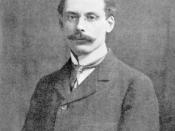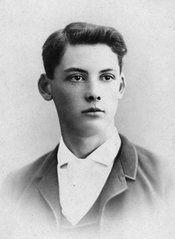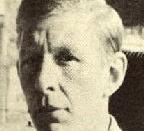Throughout time, society has had its ways of developing what is to be considered the Ideal Citizen. This Citizen consists of many traits that are favorable by the many. If someone were to encounter such an individual, they would respect them, hear others good praise about them, and possibly even admire them. They would likely give the viewer the impression of an enjoyable lifestyle, one that many would trade with their own. However, the ways in which society operates have made it easy to not notice the internal conflicts and issues that even some of the greatest men of our society surely have. To be such an individual in many instances may not be what it appears. The following discussed poems are examples of such misjudgment.
In W.H. Auden's "The Unknown Citizen" each line from beginning nearly to end consists of something that this individual has done that would associate him with being a man of the "Greater Community" (Auden 5).
All of his traits are either professional or approved of by the overall society. It is not until the last two lines that the poem strays slightly to a speaker's perspective of the individual, which is the typical belief of the majority of society. However, in text one can see the irony within, and it is almost sad how wrong it may be. It is not the fact that this perspective is wrong, for it might not be. Rather, it is the fact that the characters unhappiness is not even truly considered as a possibility. If the character were indeed unhappy the world around him would never expect it.
In the example of W.H. Auden's poem, it is the bureaucratic ways of society that generates many of the ideals, and therefore creates this boring and somewhat simple...


